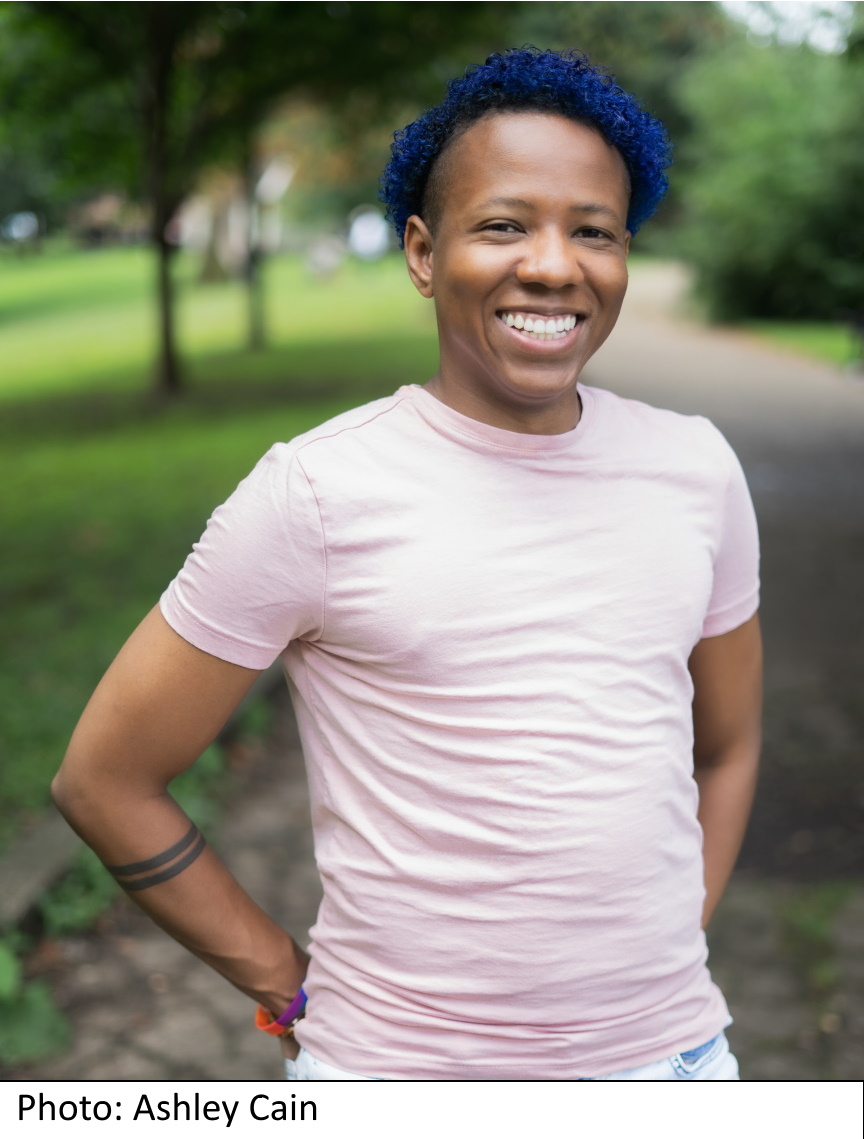Rule Breakers: Never a Rule to Begin With
When I was young, I heard a family member say something that has stuck with me for all of these years: “Black people can’t be gay.” As ridiculous as this sounds, there are plenty of people who have had and still have this mindset. Beyond the unfortunately common homophobia, the reasons vary.
 When I was young, I heard a family member say something that has stuck with me for all of these years: “Black people can’t be gay.” As ridiculous as this sounds, there are plenty of people who have had and still have this mindset. Beyond the unfortunately common homophobia, the reasons vary. Some people mean that Black people can’t be gay because we already live in a society that is dangerous for Black people; why add the dangers of facing anti-queerness on top of that? This is something that Kingston James’s family worries about in my novel King and the Dragonflies, when twelve-year-old King reveals he is questioning his identity and thinks he might be gay. His parents worry for him without realizing the harm and pain this causes their child.
When I was young, I heard a family member say something that has stuck with me for all of these years: “Black people can’t be gay.” As ridiculous as this sounds, there are plenty of people who have had and still have this mindset. Beyond the unfortunately common homophobia, the reasons vary. Some people mean that Black people can’t be gay because we already live in a society that is dangerous for Black people; why add the dangers of facing anti-queerness on top of that? This is something that Kingston James’s family worries about in my novel King and the Dragonflies, when twelve-year-old King reveals he is questioning his identity and thinks he might be gay. His parents worry for him without realizing the harm and pain this causes their child.
Others say that Black people can’t be gay because they believe queerness is meant only for white people — and that’s probably because white queerness is all we’ve ever really seen. Media and entertainment, books and movies very rarely show happy, healthy, queer Black people and relationships. We’re not given that same level of visibility, and for many people, if you can’t see something, then it simply doesn’t exist.
As I discovered my own queer identity, I remember struggling with how to present myself. I didn’t have any iconic characters to look to for strength, to validate that I could be both Black and queer. A friend once told me in college that it was interesting that I was so adamantly pro-LGBTQIA+ equality and rights but that I didn’t seem to think being queer was an option for myself. This is one of the reasons my books feature so many Black and queer characters — so that young people can realize from early on that they are allowed to be Black and queer, too.
Another reason people say that Black people can’t be gay is that they don’t know our Black queer history. I was surprised to learn recently that a lot of people don’t know, for example, about the queer icons of the Harlem Renaissance, which wasn’t only a renaissance in Black writing and art but also an intersection of race and sexuality. Langston Hughes, Ethel Waters, Florence Mills, Claude McKay, Countee Cullen, Alain Locke, Josephine Baker — the list of Black and queer creators, poets, artists, and philosophers goes on and on. So many Black and queer people have existed and shaped our community and society. But that history has been buried, forgotten; and without our history, it’s easy for people to erase Black queerness today.

RELATED
ALREADY A SUBSCRIBER? LOG IN
We are currently offering this content for free. Sign up now to activate your personal profile, where you can save articles for future viewing.







Add Comment :-
Be the first reader to comment.
Comment Policy:
Comment should not be empty !!!